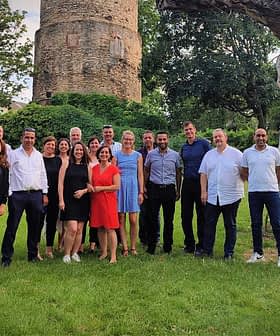Scientists Use Forensic Techniques to Gauge Olive Oil Quality, Prevent Fraud
Scientists managed to quantify DNA present in olive oil with the help of breakthrough forensic techniques.
Much like deoxyribonucleic acid (DNA) helps solve crimes, it can be used to control food quality and prevent fraud. It plays the role of a true identity card, and that still holds true for plants.
Using DNA to determine olive oil authenticity and quality has proven to be a challenge, though. That was true until scientists managed to quantify DNA present in olive oil with the help of breakthrough forensic techniques, as a result of a coordinated, collegial effort.
The goal is to develop a method to determine if monovarietal-branded olive oils contain oils from other varieties, or worse.
The reason it is difficult to use DNA in order to determine olive oil quality is that DNA dissolves in water but not in lipids (understand: fat), and olive oil contains few molecules that can be reasonably and relevantly exploited. Besides, DNA is very fragmented in virgin olive oil.
Scientists from the University of Córdoba have teamed up with their counterparts from the Council of Scientific Investigation (combined with researchers from the Institute of Sustainable Agriculture) in order to tackle the challenge that poses olive oil DNA authentication and quantification.
The team of researchers managed to come up with an absolute way of quantifying DNA in virgin olive oil by using advanced forensic techniques that are usually reserved for crime scenes analysis.
Gabriel Dorado Pérez, a molecular biology and biochemistry professor and the researcher responsible of the investigation group AGR-248 (Agri-food Biotechnology), as well as the Andalusian Plan of Investigation, Development and Innovation, gave his insight on the process: “Surely, considering the fact that virgin olive oil is the juice of a fruit, it contains water drops in microscopic quantity in which DNA dissolves,” he explained.
In order to collect rests of DNA dissolved in the water contained in virgin olive oil, the scientific group of experts used a forensics technique called the ‘droplet digital-PCR.’ That technique allows amplification and quantification of DNA, even in tough-to-analyze elements such as virgin olive oil and eventually allows researchers to gather relevant data.
The aim of the scientific team’s efforts was to promote certification of quality, origin, traceability and fraud identification. Those elements have proven to be crucial in the global olive oil market.
Better DNA quantification leads to greater control over olive oil quality and origin. “The goal is to develop a traceability method which will allow us to determine if monovarietal-branded olive oil bottles contain oils from other varieties, or worse, from other species such as sunflower, peanut, or almond,” Dorado Pérez noted.
DNA from other sources present different genetical characteristics; that is used to certify olive oil quality or on the contrary to unveil fraud.
Indeed, frauds in the global olive oil market greatly impacts growers, producers and marketers. The news of the group of scientists’ accomplishment has been received with enthusiasm among many in the sector.








